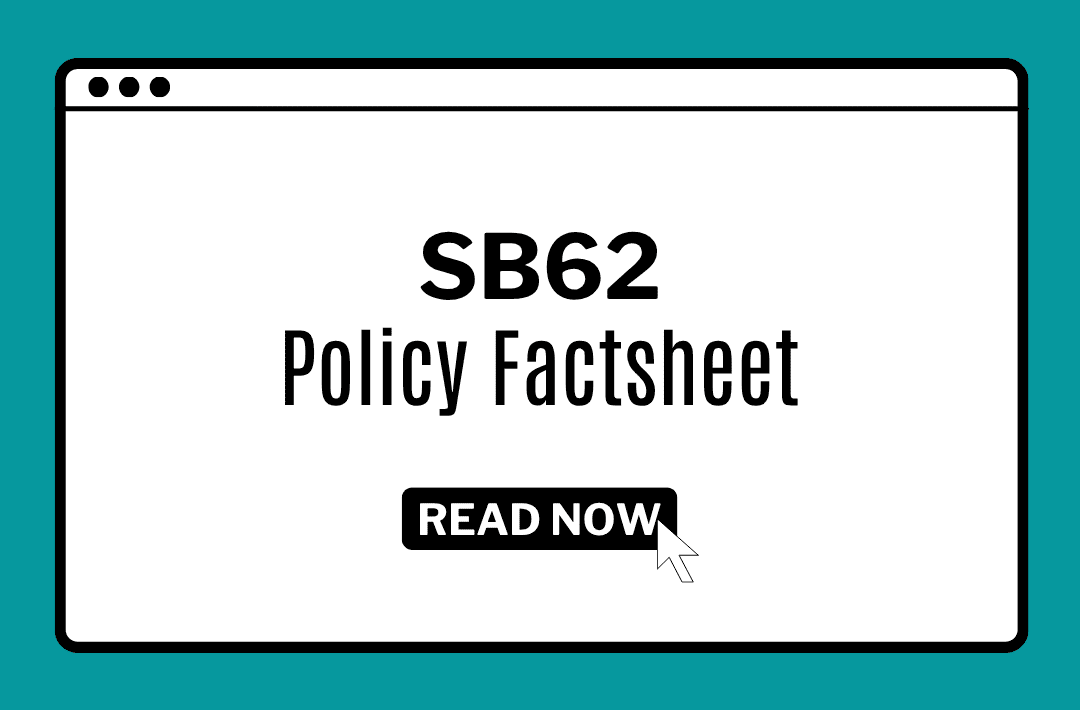
Spotlight On Brazil: Why Is The COP30 Host Expanding Offshore Oil Production?
Environmental advocates have criticised Brazil for its national oil company’s plans to drill near the mouth of the Amazon. A contentious bill, dubbed the ‘Devastation Bill’ by environmental groups, weakens regulations for oil and gas projects and threatens both the environment and Indigenous Peoples. Brazil’s economic development must not depend on destroying its unique and irreplaceable biodiversity.
by Harveet Singh Purewal
Brazil is the largest country in Latin America by land area and population, and home to areas of rich biodiversity that are important in our fight against climate change, namely the Amazon, Pantanal, and Cerrado ecosystems. As the host country for UNFCCC’s COP30, the Brazilian government’s environmental policies are under the spotlight. Against this backdrop, Brazil stands at a crossroads, as continued investment in its oil economy will come at the expense of environmental protection.
Brazil’s growing petroeconomy sets its sights on the Foz do Amazonas basin
Brazil relies on oil for 54% of its total energy production; it is the largest producer of petroleum in South America and amongst the top 10 global producers, with approximately 13.24 billion barrels produced as of 2022. The national oil company, Petrobras, produces most of Brazil’s crude oil (nearly 63%) as of mid-2023 [1].
Brazil’s main deep-sea oil drilling sites, which are responsible for nearly 80% of national production, are predicted to peak by the end of the decade. As such, Petrobras and other oil companies are now looking for new regions to extract [2,3]. The Foz do Amazonas basin and wider Equatorial Margin offshore from the Amazon Delta are now seen as the new frontier for oil discovery. Estimates say the region contains the equivalent of up to 6.2 billion barrels of oil [4]. Proponents for drilling see it as necessary for Brazil’s long-term energy security and ambition to join OPEC+ – an intergovernmental organisation of major oil-exporting countries. The basin borders the state of Amapa, and it has been suggested that even moderate increases in oil production could raise Amapa’s GDP by 41.5% and create over 53,000 jobs [4].
However, Foz do Amazonas is an ecologically sensitive region, home to marine biodiversity hotspots and coral reefs, and is 175km from the Amazon forest on Brazil’s coast [3,5]. There are concerns that drilling in this region and any potential oil spills may have detrimental impacts on local biodiversity, including key habitats for manatees, turtles, and other rare species, as well as for Indigenous Peoples who have not been consulted throughout the process [5]. Drilling in the Foz do Amazonas could also generate greenhouse gas emissions significant enough to negate the benefits of reductions in Amazonian deforestation [8].
Brazil’s environment agency (IBAMA) rejected Petrobras’s drilling proposal in 2023 because the company failed to provide adequate measures to deal with the impacts of oil spills on local biodiversity, and also because of a general lack of evidence of the region’s suitability for oil drilling. But this year, the picture has changed significantly. In February 2025, Brazil’s President Lula da Silva pushed for offshore drilling in the region and urged IBAMA to authorise it. Three months later, IBAMA approved Petrobras’s drilling application [6]. In June, the Brazilian National Petroleum Agency opened 65 new areas (oil blocks) for exploration, 47 of which are in the Foz do Amazonas [4]. 30 oil blocks directly overlap with officially designated priority zones for biodiversity – 13 with over 80% overlap. Even blocks that do not overlap are on average only 21.3km away from extremely high priority areas [4]. As of August 2025, Petrobras has completed the final steps required by IBAMA to obtain its licence to officially start drilling [7].
Wider environmental deregulation in Brazil
Offshore drilling in Foz do Amazonas has institutional backing from Brazil’s lawmakers, due to a conservative majority in Congress where environmental protection and Indigenous rights remain highly contentious issues [3]. Although protecting the environment was a major pillar of Lula’s presidential campaign in 2022, Brazil has since experienced a suite of rollbacks on environmental regulations.
In July 2025, Congress passed a broad piece of legislation that relaxes environmental licensing [9]. It allows businesses to self-license and self-certify their environmental impacts. The bill, dubbed the Devastation Bill by environmental groups, also proposes that nationally important projects, such as oil exploration in the Foz do Amazonas basin, can fast-track the licensing process and that low-to-medium impact agricultural activities do not need licensing [9].
Dismantling the environmental licensing system puts Brazil’s already threatened ecosystems at further risk. For example, the Atlantic Forest (Brazil’s most deforested biome) would lose its protection under the Atlantic Forest law. This would also derail Brazil’s pledge to stop deforestation by 2030 [9,10]. Moreover, by reducing the capacity of government institutions such as the Ministry of Indigenous Rights (FUNAI) to officially recognise indigenous territories, it violates Indigenous rights and the right to Free, Prior, and Informed Consent that is guaranteed in the constitution [11,9]. Several sections of the bill have been deemed unconstitutional by the Brazilian Supreme Court, and the bill has faced several legal challenges. In early August, Lula vetoed 63 out of the bill’s 400 measures, including sections that streamline licensing for projects in the Amazon and reduce protection for the Atlantic forest – although Congress can dispute these and introduce new legislation [12,13].
Resolving economic development and environmental protection
Brazil is at a critical moment as actions in the coming years will have irreversible long-term impacts. The Devastation Bill is a litmus test for Brazil’s trade-off between environmental protection and economic development. The risks of oil exploration in Brazil’s ecologically fragile regions are incompatible with its aspirations for environmental protection and will further deepen economic inequality and social injustice [4].
Moving past the environmental-economic dichotomy requires Brazil to embrace a holistic model that respects and protects its nature and biodiversity, while also recognising the reality of Brazil and many other emerging economies in need of socioeconomic development [4].

Image of Oil Drilling Proposal [14]
References:
[1] U.S. Energy Information Administration. (2023). Country Analysis Brief: Brazil. https://www.eia.gov/international/content/analysis/countries_long/Brazil/pdf/brazil-2023.pdf[2] RT Staff Reporters. (2025, June 4). Brazil Achieves Historic Petroleum Production Record in Pre-Salt Fields. The Rio Times. https://www.riotimesonline.com/brazil-achieves-historic-petroleum-production-record-in-pre-salt-fields/
[3] Pooler, M. (2023, June 8). Brazil divided over oil drilling proposal off Amazon delta. Financial Times. https://www.ft.com/content/800693a0-fc52-408e-83bd-0b8e63f38b3a
[4]Paletta, J., Callegari, C., Oliveira Fiorini, A.C. et al. The Amazon’s new oil frontier is a biodiversity bomb in the making. Nat Ecol Evol 9, 1532–1534 (2025). https://doi.org/10.1038/s41559-025-02815-3
[5] Zacks Investment Research. (2025, August 15). Petrobras Gets Regulatory Clearance for Offshore Amazon Drilling. Zacks Investment Research. https://www.zacks.com/stock/news/2716755/petrobras-gets-regulatory-clearance-for-offshore-amazon-drilling?cid=CS-MSN-FT-analyst_blog
[6] Fabiano Maisonnave. (2025, February 12). Brazil’s Lula backs oil exploration in the Amazon ahead of hosting UN climate talks. AP News. https://apnews.com/article/brazil-amazon-oil-cop30-energy-transition-4319a567223b9877fad50e8291e58843
[7] Teles, B. (2025, August 27). CPG Click Petroleo e Gas. CPG Click Petroleo E Gas. https://clickpetroleoegas.com.br/exploracao-de-petroleo-na-foz-do-amazonas-fica-mais-proxima-petrobras-realiza-400-testes-ambientais-ibama-aprova-simulacoes-e-licenca-pode-sair-a-qualquer-momento-btl96/
[8] Sarah Brown. (2025, February 21). Lula pushes oil drilling at mouth of Amazon despite climate risks. Mongabay Environmental News. https://news.mongabay.com/2025/02/lula-pushes-oil-drilling-at-mouth-of-amazon-despite-climate-risks/
[9] WWF-Brazil. (2025, July 17). Brazil’s Congress passes the “Devastation Bill” and paves the way for unprecedented environment. Wwf.org.br. https://www.wwf.org.br/?92184/Brazils-Congress-passes-the-Devastation-Bill-and-paves-the-way-for-unprecedented-environmental-destruction
[10] President Lula highlights Brazil’s commitment to zero deforestation and calls for action by developed countries during climate and energy forum. (2023, April 21). Planalto. https://www.gov.br/planalto/en/latest-news/2023/04/president-lula-highlights-brazil2019s-commitment-to-zero-deforestation-and-calls-for-action-by-developed-countries-during-climate-and-energy-forum
[11] Fabiona Maisonnave. (2025b, June 10). Ahead of UN climate talks, Brazil fast-tracks oil and highway projects that threaten the Amazon. The Seattle Times. https://www.seattletimes.com/business/ahead-of-un-climate-talks-brazil-fast-tracks-oil-and-highway-projects-that-threaten-the-amazon/
[12] Savarese, M. (2025, August 8). Brazil’s Lula vetoes parts of environment bill pushed by the opposition that could harm the Amazon. Yahoo News. https://uk.news.yahoo.com/brazils-lula-vetoes-parts-environment-204201715.html
[13] Wilkins, C. (2025, August 20). Officials spark backlash with last-minute moves on controversial “devastation bill”: “It is a tragedy.” The Cool Down. https://www.thecooldown.com/outdoors/devastation-bill-brazil-environmental-regulations/
[14] https://www.bing.com/images/search?view=detailV2&ccid=NjWqqyI8&id=9A80E35F8BE9B847511C0A834F8BA09BE113CF2C&thid=OIP.NjWqqyI8SVPriR1sjChM-gHaIL&mediaurl=https%3A%2F%2Fmedia.nature.com%2Flw767%2Fmagazine-assets%2Fd41586-023-02187-3%2Fd41586-023-02187-3_25816600.jpg&cdnurl=https%3A%2F%2Fth.bing.com%2Fth%2Fid%2FR.3635aaab223c4953eb891d6c8c284cfa%3Frik%3DLM8T4Zugi0%252bDCg%26pid%3DImgRaw%26r%3D0&exph=830&expw=751&q=mouth+of+the+amazon+petrobras+oil+drilling+marine+reserves&FORM=IRPRST&ck=3BEC9CB248C3E4217BCA1042B923456B&selectedIndex=0&itb=0&cw=1375&ch=637&ajaxhist=0&ajaxserp=0.



